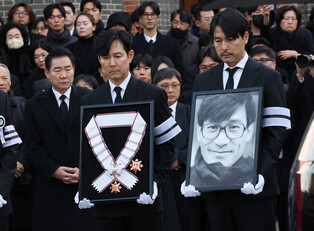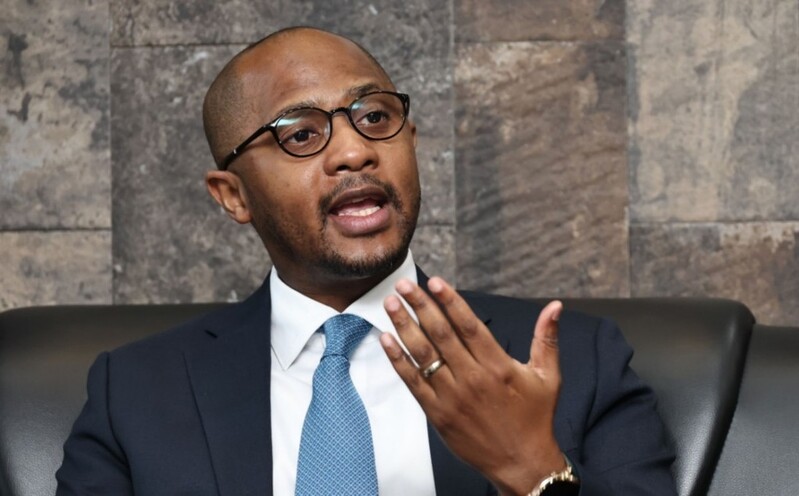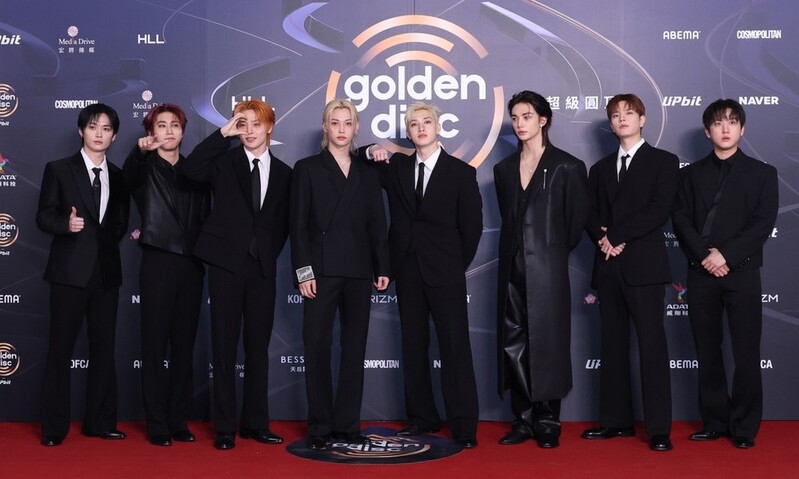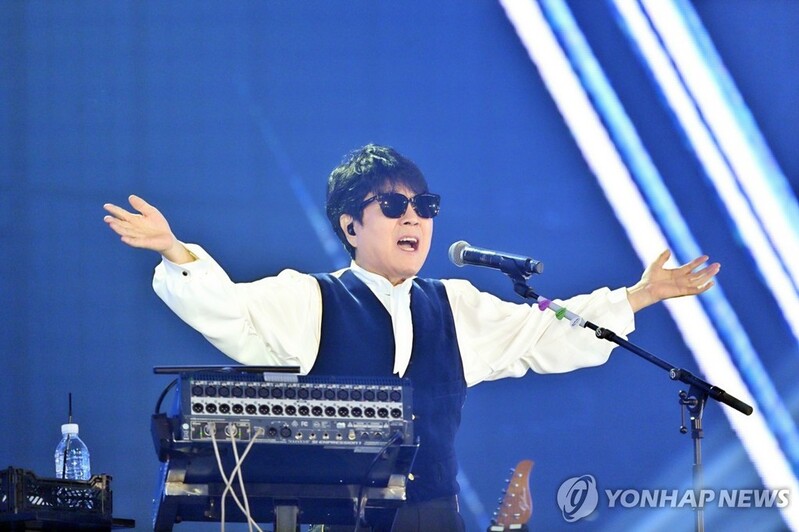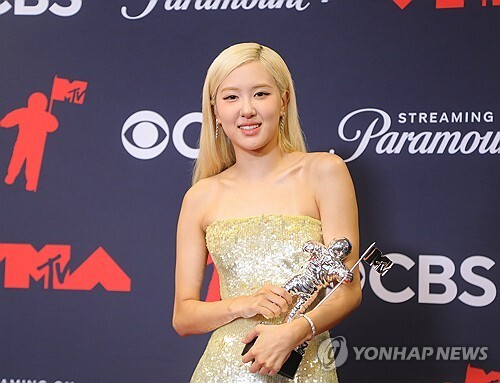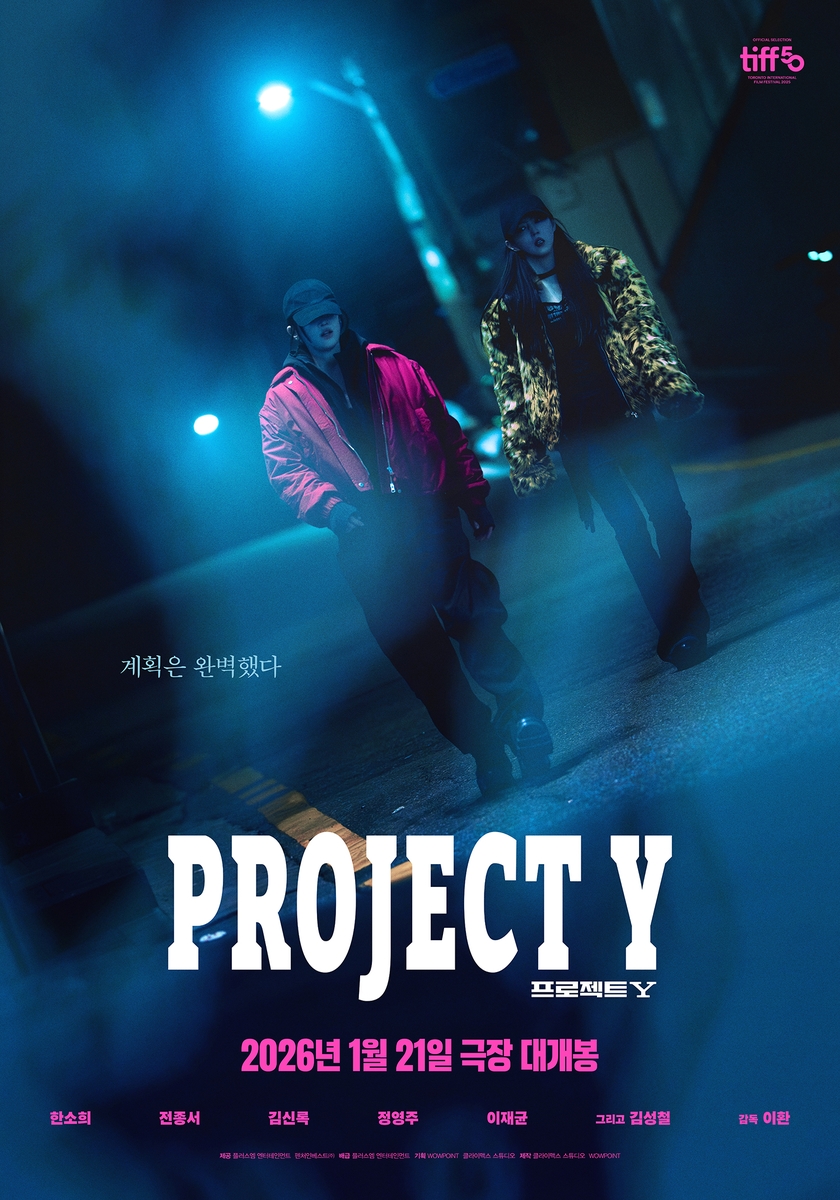top 10 news-2023
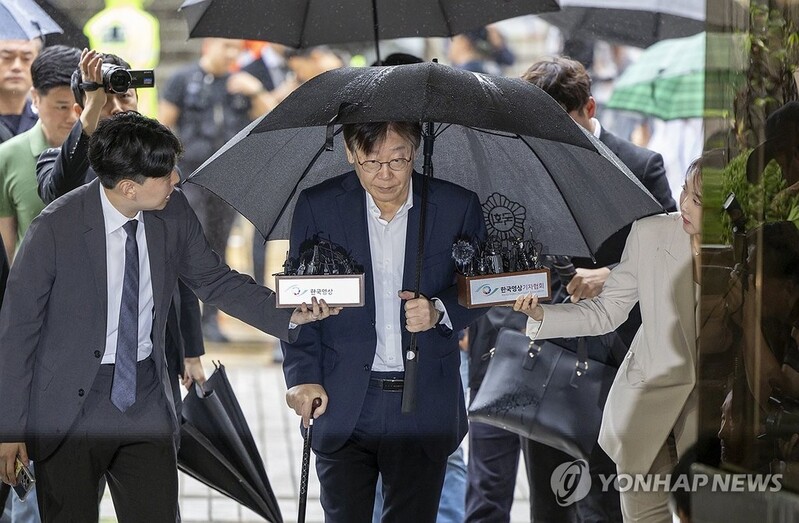 |
| ▲ Lee Jae-myung (C), leader of the main opposition Democratic Party, walks with a cane as he appears at the Seoul Central District Court on Sept. 26, 2023, to attend a hearing to review the legality of his detention over corruption charges. The prosecution has filed for an arrest warrant for Lee over alleged breach of trust, bribery and other charges stemming from his time as mayor of Seongnam, south of Seoul, years ago in connection with a scandal-ridden land development project and his alleged involvement in a company's illegal cash remittance to North Korea. (Yonhap) |
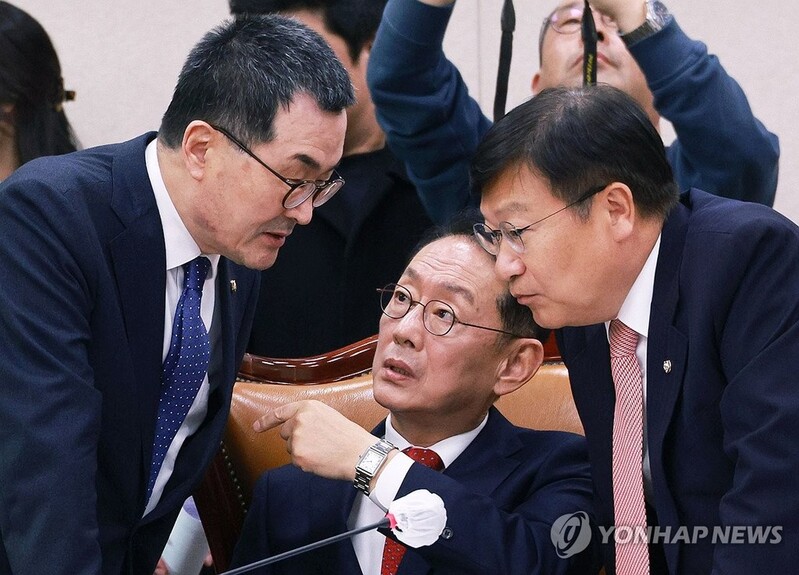 |
| ▲ Lawmakers from the two major rival parties discuss matters during a meeting of the parliamentary legislation and judiciary committee, at the National Assembly in Seoul, in this photo taken Dec. 7, 2023. (Yonhap) |
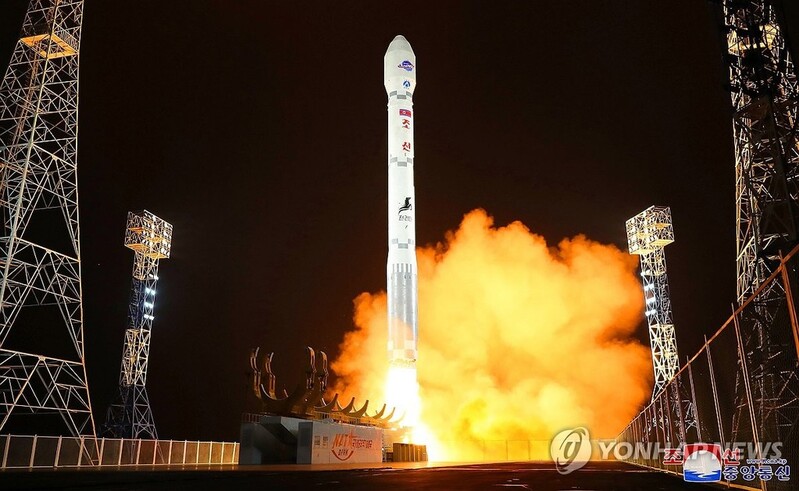 |
| ▲ This photo, carried by North Korea's official Korean Central News Agency on Nov. 22, 2023, shows the North launching a military spy satellite, called the Malligyong-1, on a new type of Chollima-1 rocket the previous day. (For Use Only in the Republic of Korea. No Redistribution) (Yonhap) |
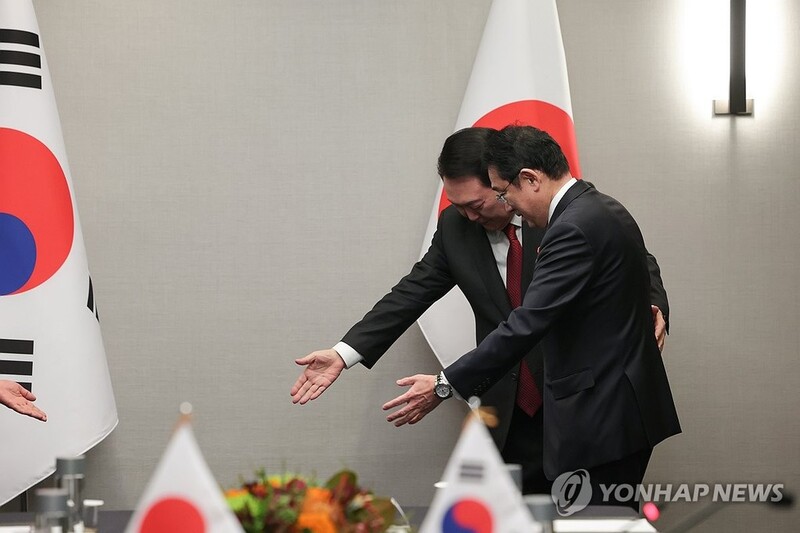 |
| ▲ South Korean President Yoon Suk Yeol (rear) guides Japanese Prime Minister Fumio Kishida for a photo session during their talks at the Moscone Center in San Francisco on Nov. 16, 2023, in this photo provided by Yoon's office. (PHOTO NOT FOR SALE) (Yonhap) |
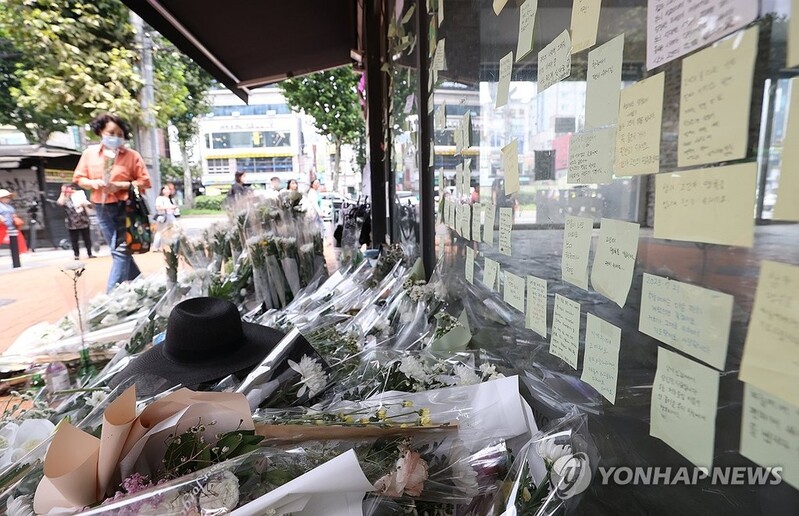 |
| ▲ This file photo shows a mourning altar set up near Sillim Station in Seoul after a stabbing rampage killed one man and wounded three others on July 25, 2023. (Yonhap) |
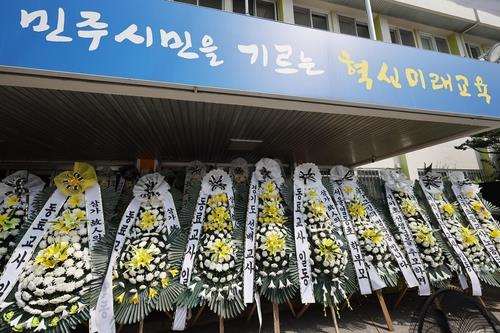 |
| ▲ Flowers mourning the suicide of a young teacher are placed in front of the Gangnam Seocho Office of Education on July 21, 2023. (Yonhap) |
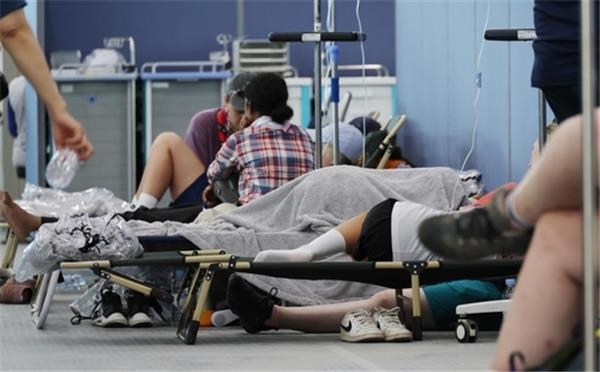 |
| ▲ Participants in the 2023 World Scout Jamboree receive medical treatment at a hospital set up at the campsite in the reclaimed Saemangeum wetland area for heat-related illnesses on Aug. 3, 2023. (Yonhap) |
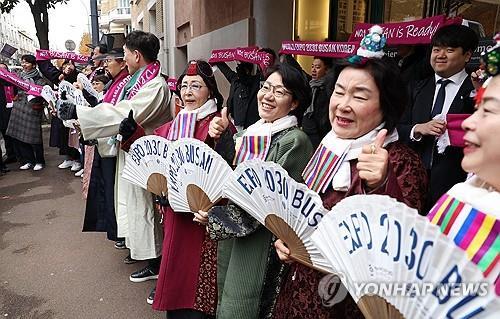 |
| ▲ South Korean supporters gather outside the Palais des Congres, the venue of the 173rd general assembly of the Bureau International des Expositions in Paris, before its members vote for the host city of the 2030 World Expo among South Korea's Busan, Rome of Italy and Riyadh of Saudi Arabia, on Nov. 28, 2023. (Yonhap) |
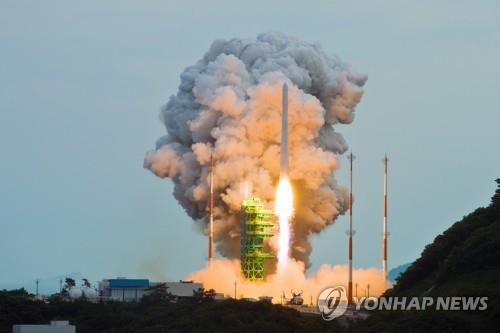 |
| ▲ South Korea's homegrown space rocket Nuri blasts off from Naro Space Center in Goheung, South Jeolla Province, on May 25, 2023. (Yonhap) |
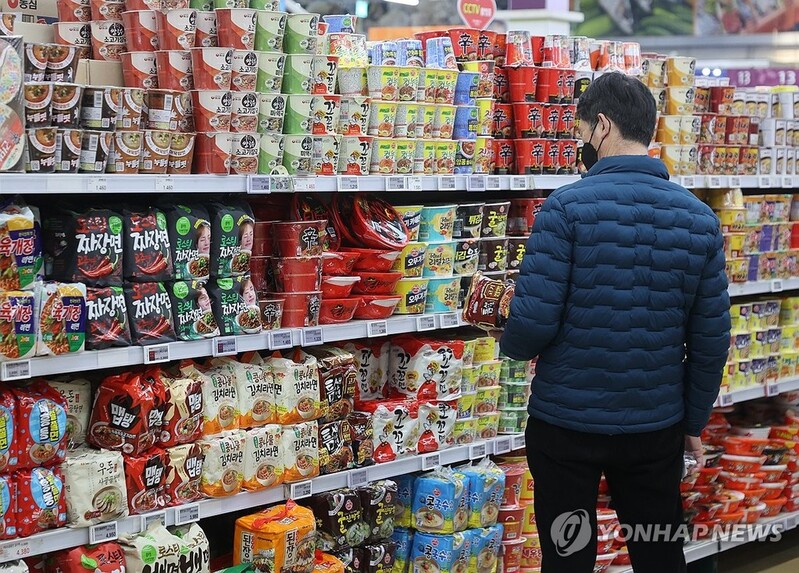 |
| ▲ A man shops for ramyeon, a South Korean oil-fried instant noodle, at a supermarket in Seoul on Dec. 10, 2023. (Yonhap) |
top 10 news-2023
Top 10 Korean news of 2023
SEOUL, Dec. 15 (Yonhap) -- The following are the top 10 South Korean news stories of 2023 as selected by Yonhap News editors.
▲ Opposition leader's legal woes
Lee Jae-myung, the leader of the main opposition Democratic Party, faced legal woes throughout the year amid charges of development corruption and bribery arising from his term as mayor of Seongnam, south of Seoul, years ago.
He appeared before prosecutors and at court many times in connection with charges he caused massive financial losses to the Seongnam government by giving favors to private partners in the Daejang-dong and Wirye development projects, offered administrative favors to four companies in exchange for corporate donations to football club Seongnam FC and violated election laws during the 2022 presidential campaign.
Lee's legal problems made it challenging to perform his duties as party leader.
On Feb. 27, the National Assembly voted down the government's request for consent to arrest him over corruption charges, but by a margin of only one vote, indicating up to 30 lawmakers of Lee's own party could have voted for his arrest.
On June 19, Lee declared that he would give up parliamentary immunity from arrest.
Under mounting pressure from nonmainstream party members to resolve his legal issues, Lee began an indefinite hunger strike on Aug. 31 in protest of what he called the prosecution's "evil" investigations.
On Sept. 18, the prosecution requested an arrest warrant for Lee over allegations he asked Ssangbangwool Group, an underwear maker, to illegally transfer US$8 million to North Korea between 2019 and 2020, when he was serving as Gyeonggi Province governor, through his deputy to facilitate his visit to the North, and push for a joint smart farm project between his province and Pyongyang.
Days later, the National Assembly voted in favor of a motion seeking consent to Lee's arrest.
A Seoul court rejected an arrest warrant sought for Lee on Sept. 27.
▲ Factional split deepens ahead of the general elections
The National Assembly raised the eyebrows of many this year, as the country's two major rival parties continued to engage in disputes, prioritizing political interests over livelihood matters.
The ruling People Power Party (PPP) and the main opposition Democratic Party (DP) were absorbed in ideological conflicts, while important bills were pending in parliamentary standing committees.
The National Assembly also faced a string of unprecedented events.
In late September, the parliament passed a motion to lift the immunity from arrest of the main opposition party leader, Lee Jae-myung, which was followed by the DP railroading motions calling for the dismissal of the prime minister and the impeachment of two prosecutors.
President Yoon Suk Yeol repeatedly approved the nominations of government officials without consent from parliament. Since Yoon took office, a record 16 out of 39 Cabinet nominees, or 41 percent, were appointed even though the National Assembly did not adopt their confirmation hearing reports.
Next year's national budget also failed to pass the Assembly by its deadline, while negotiations on the electoral map and the electoral system are still in progress when the general elections are only four months away.
Political watchers said confrontation between the rival parties deepened due in part to the DP, which controls 168 seats in the 298-member parliament, opposing key agenda items of the Yoon administration. But they also noted that the PPP cannot avoid criticism that it abandoned its duties as a ruling party and shifted the blame for mismanaging state affairs onto the previous administration and the opposition party.
With this backdrop, the proportion of swing voters reached around 30 percent in multiple surveys, a sign that people are disappointed with the deepening factional split between the two parties.
▲ N. Korea launches military spy satellite amid frosty inter-Korean ties
Relations between South and North Korea remained sharply strained this year, as Pyongyang focused on advancing its nuclear and missile programs, including the launch of a military spy satellite.
In April, North Korea launched a new solid-fuel Hwasong-18 intercontinental ballistic missile for the first time, and the country also amended the constitution in September to enshrine the policy of nuclear weapons.
On Nov. 21, the repressive regime put a military spy satellite, named the Malligyong-1, into orbit after two failed attempts in May and August. There are suspicions that North Korea might have received technical support from Russia in return for its arms supplies for use in Moscow's war in Ukraine.
North Korea claimed the spy satellite took photos of the White House, the Pentagon and major military installations in South Korea and the United States. It also vowed to launch more spy satellites in a short span of time.
Experts said a spy satellite will help the North stage a precision strike against targets in war situations, but many still have doubts about the North's satellite capabilities.
South Korea partially suspended a 2018 inter-Korean military tension reduction accord in protest of North Korea's spy satellite launch, and resumed aerial surveillance along the border. In response, North Korea said it will restore all military measures it halted under the agreement, effectively scrapping the deal.
Since April 7, North Korea has also not responded to daily phone calls through an inter-Korean liaison line and military hotline, without specifying any reason. Seoul's unification ministry voiced "strong" regret over the North's "unilateral and irresponsible" move.
▲ S. Korea-Japan relations thaw on Seoul's forced labor solution
Bilateral relations between South Korea and Japan warmed significantly this year after Seoul proposed a resolution to the longstanding row over the issue of compensating the Korean victims of Japan's wartime forced labor.
The South Korean government announced in March it will compensate the victims through a public foundation funded by Korean companies without asking for contributions from Japanese companies.
The announcement quickly led to a dramatic warming of the bilateral relations, with the two countries resuming "shuttle diplomacy," or reciprocal visits by their leaders. Yoon held summits with Japanese Prime Minister Fumio Kishida seven times this year alone.
Japan removed its export control measures it had placed on Seoul and reinstated South Korea as a trusted trading partner. South Korea also withdrew its plans to lodge a complaint at the World Trade Organization over Japan's export curbs and restored the General Security of Military Information Agreement, a bilateral military information-sharing pact with Japan.
The resolution was seen as part of President Yoon Suk Yeol's efforts to move past the thorny issue rooted in Japan's 1910-45 colonial rule of the Korean Peninsula and improve ties with Tokyo, so that it can bolster trilateral security cooperation with the United States, their mutual ally.
But the resolution spurred a backlash from some of the victims and their supporters maintaining that Japan's Nippon Steel and Mitsubishi Heavy Industries should pay compensation for the forced mobilization, as ordered by South Korea's Supreme Court in 2018. Japan has insisted that all matters of compensation were settled under a 1965 treaty that normalized bilateral ties.
Despite the criticism, the thaw in Seoul-Tokyo relations helped fuel momentum for three-way cooperation involving the U.S. The leaders of South Korea, the U.S. and Japan held the landmark Camp David trilateral summit in August and affirmed their commitment to further closing ranks for a stronger three-way security partnership.
▲ Growing public anxiety over back-to-back violent crimes
Public anxiety spiked after a series of stabbing rampages targeting random people in public places, and back-to-back abduction and murder cases in the country.
In March, a woman in her 40s was abducted from an apartment building in Seoul's Gangnam Ward, then murdered the following day, with her body buried on a hill in Daejeon, about 140 kilometers south of Seoul.
The two suspects -- Lee Kyeong-woo and Hwang Dae-han, both aged 36 -- were sentenced to life in prison, and Yeon Ji-ho, another accomplice, was sentenced to 25 years behind bars in a district court ruling on Oct. 25.
They reportedly committed the crime following instructions of a mastermind couple who paid the hit men after holding a grudge over losses in cryptocurrency investments they had made through the victim.
The case drew public shock given the abduction took place at an apartment complex in downtown Seoul.
On July 21, a man identified as Cho Seon, 33, went on a deadly stabbing rampage in broad daylight that killed one man and wounded three others near Sillim Station in Seoul.
The incident led to many back-to-back violent crimes in the greater Seoul area.
A man, identified as 22-year-old Choi Won-jong, rammed a car onto a pedestrian walkway, then went on a stabbing spree at a department store in Seongnam, just south of Seoul, leaving two dead and 12 others wounded on Aug. 3.
Later that same month, Choi Yun-jong, 30, was arrested for raping a victim he randomly picked on a hillside hiking trail in the Sillim neighborhood, then fatally beating the victim with brass knuckles and throttling the victim to death.
In the month that followed the stabbing rampage in Sillim Station, the police found 476 murder threats online and booked 235 people on charges of writing the posts.
The government also responded by proposing new legal provisions to seek stern punishment for people caught writing online murder threats or carrying weapons in public, while prosecutors warned of the maximum punishment allowed by law against such online threats.
▲ Collapse of teachers' rights sparks anger in teachers' community
A young teacher in the second year of her career took her own life at an elementary school in Seoul's Seocho Ward on July 18. The death sparked intense anger within the teachers' community following suspicions that the dead teacher had been long tormented by complaints from students' parents.
In online communities, teachers shared their own experiences of facing malicious complaints from school parents, being accused of child abuse or dealing with lawsuits.
Every Saturday between July and October, tens of thousands of teachers took to the streets for mass rallies to mourn the death of the young teacher and denounce education authorities for failing to protect teachers from malicious parental complaints.
A total of 11 Saturday rallies were held from July 22 to Oct. 28 in central Seoul or in front of the National Assembly, demanding that the government and the assembly come up with measures.
Teachers designated Sept. 4, the ceremonially important 49th day since the young teacher's death, as "Public Education Stoppage Day," taking the day off en masse as part of their collective action.
The education ministry initially pledged to sternly punish them but later retracted the stance amid fierce public criticism.
In September, the National Assembly passed a set of bills aimed at protecting teachers' rights, including granting immunity to teachers from child abuse liability for reasonable student discipline activities.
A controversy was continuing over some regional education offices' moves to abolish or revise a student rights ordinance that had been cited as a factor compromising teachers' rights.
▲ Saemangeum Jamboree blunder sparks political dispute over responsibility
The 2023 World Scout Jamboree, held in mid-summer in the reclaimed Saemangeum wetland area in North Jeolla Province, faltered due to inadequate heat relief and hygiene measures.
Several participating adolescent scouts complained of dizziness and collapsed on the opening night on Aug. 2 amid a tropical evening.
The number of participants with heat-related illnesses quickly swelled to about 100 as a heat dome, formed by the day's humid and hot weather combined with the gathering of tens of thousands of people, blanketed the opening ceremony site.
On the social network service, criticism flooded in that the campsite lacked trees or forests to provide shade, making it feel almost like sitting inside a sauna.
There were also drainage issues that left the campsite flooded with puddles, along with intense complaints about shoddy toilets and shower rooms, as well as unhygienic foods.
The central government and companies hurriedly took action to address the situation, but scout members of some countries, including the United States and Britain, withdrew from the campsite.
The remaining members also eventually evacuated to other places due to the approach of a powerful typhoon, leaving the campsite empty of scouts four days ahead of schedule.
The central government later announced a decision to reconsider a development project in Saemangeum, slashing its budget by about 70 percent.
The provincial government of North Jeolla and the main opposition Democratic Party strongly protested the decision while regional and national parliament members based in the region launched a head-shaving protest.
Ruling party lawmakers placed the blame for the Jamboree blunder on North Jeolla Province, while opposition lawmakers pointed fingers at the central government's organizing committee.
▲ S. Korea's Busan comes up short in World Expo bid; Saudi's Riyadh wins
South Korea's southern port city of Busan came up short in its bid to host the 2030 World Expo as Saudi Arabia's Riyadh won a resounding victory over Busan and Italy's Rome.
Members of the Bureau International des Expositions (BIE), the body responsible for overseeing the international fair, held a ballot in Paris on Nov. 28 after representatives from the three candidates made final presentations of their proposals.
In the first round of voting, the Saudi capital won 119 votes against Busan's 29 votes and Rome's 17 votes. Riyadh's votes were more than the two-thirds majority needed for a candidate to win without a runoff.
Joining the campaign belatedly in July 2022, South Korean delegates and business leaders, led by Prime Minister Han Duck-soo, made a final pitch in Paris to secure the event for Busan. They engaged with delegates from BIE member states to convey Busan's vision.
However, despite cautious predictions by local authorities of a tight two-way race, South Korea's second-largest city failed to garner enough votes to force a runoff.
Following the result, President Yoon Suk Yeol apologized to the nation in his address, saying the country's failed bid was due to his own shortcomings.
The World Expo, officially known as International Registered Exhibitions, has a legacy of fostering global innovation and cultural exchange since its inaugural event in London in 1851. The fair, lasting up to six months, involves international participants constructing pavilions at the Expo site.
The most recent Expo took place in Dubai, the United Arab Emirates, attracting over 24 million visits in six months. The next Expo is scheduled for Osaka, Japan, in 2025.
▲ S. Korea completes 3rd launch of space rocket Nuri
South Korea successfully launched its homegrown space rocket Nuri in May to put eight practical satellites into orbit, achieving another milestone for the country's space program.
The 200-ton Nuri, also known as KSLV-II, blasted off from Naro Space Center in the country's southern coastal village of Goheung on May 25, and successfully completed its flight sequence.
This marked the third launch of Nuri, following the first launch in 2021 and second launch in 2022.
Nuri's first stage rocket separated 123 seconds after launch at an altitude of 66 kilometers, followed by its fairing and second stage rocket separations at altitudes of 209 km and 263 km, respectively.
The main payload satellite was deployed 783 seconds, or 13 minutes, after the launch.
With the completion of the third launch, Seoul confirmed the reliability of Nuri and its potential to launch services for various satellite operations and space exploration.
President Yoon Suk Yeol lauded the successful launch of space rocket Nuri, saying it is a "splendid feat" marking South Korea's entry into the Group of Seven space powers, which includes the United States, Russia, France, China, Japan and India.
South Korea plans to conduct fourth launch of Nuri in 2025 as part of efforts to further upgrade the country's space rocket program.
▲ Soaring food prices weighs on people's livelihoods
The South Korean government put in all-out efforts to control skyrocketing food prices in 2023.
Prices of ramyeon, bread, milk, water, hamburgers, pizzas and other most-eaten food items posted the biggest jump in about 10 years since the global financial crisis.
According to data from Statistics Korea, the consumer prices index for milk and bread vaulted 14.3 percent and 5.5 percent, respectively, in October from a year ago.
Prices of snacks, sweets and other frozen products also rose by 10.6 percent on-year, while the country's overall consumer prices, a key gauge of inflation, gained 3.8 percent over the same period.
Food companies said they had to raise prices due to a rise in the cost of ingredients and shipping, as well as an increase in electricity rates, but consumer organizations claimed the price hikes are excessive.
Amid public criticism, the government asked the food companies to refrain from raising prices.
In June, major instant noodle companies, including Nongshim Co. and Samyang Roundsquare Co., lowered their ramyeon prices.
Despite the price cuts, the agriculture ministry stepped up its monitoring of food sector prices as part of efforts to put the high-flying prices of key food items under control.
The ministry also expressed concerns over "shrinkflation," which refers to companies' move to reduce the quantity of their products while freezing prices without consumers' knowledge, and urged local food makers to collaborate with the government's initiative to address inflation.
(END)
(C) Yonhap News Agency. All Rights Reserved



















